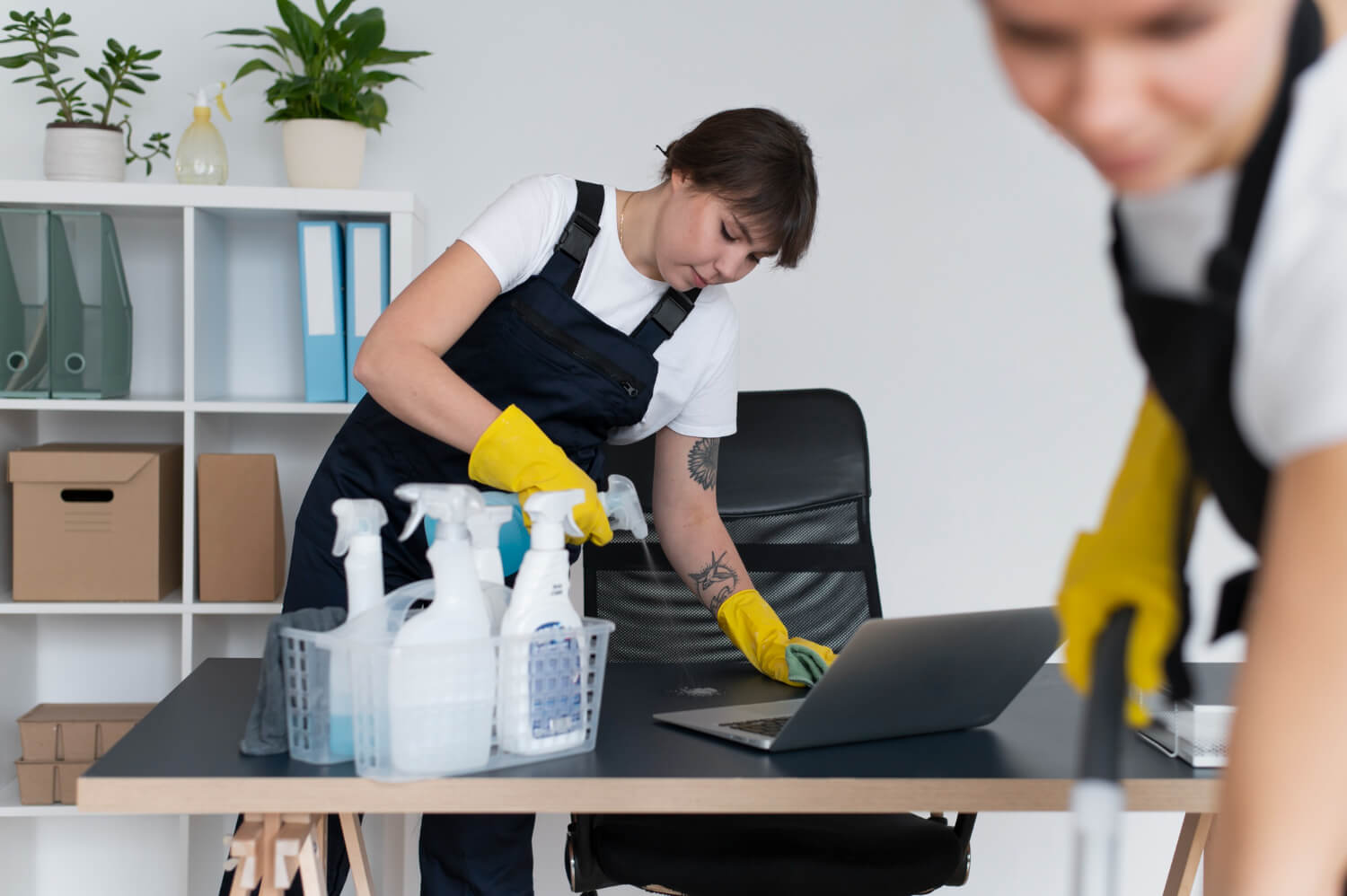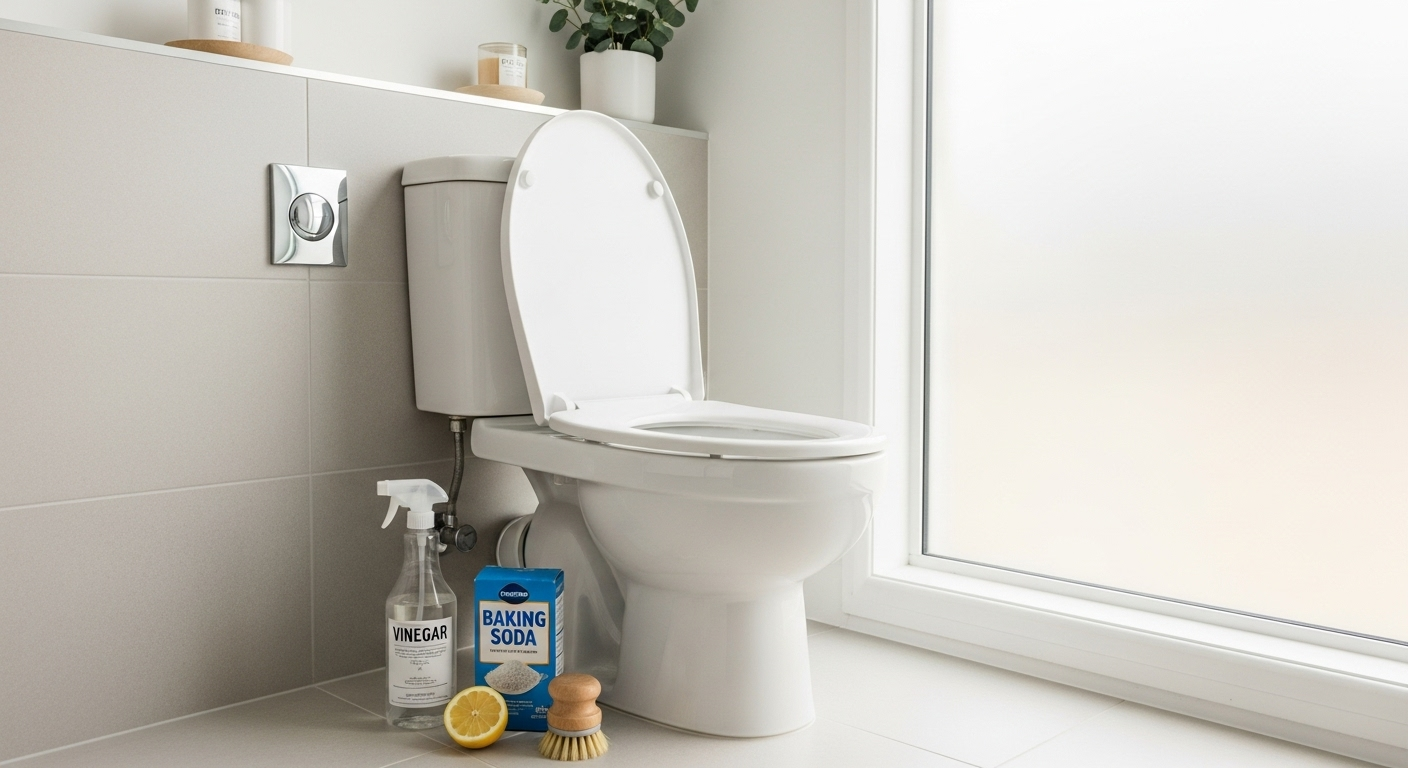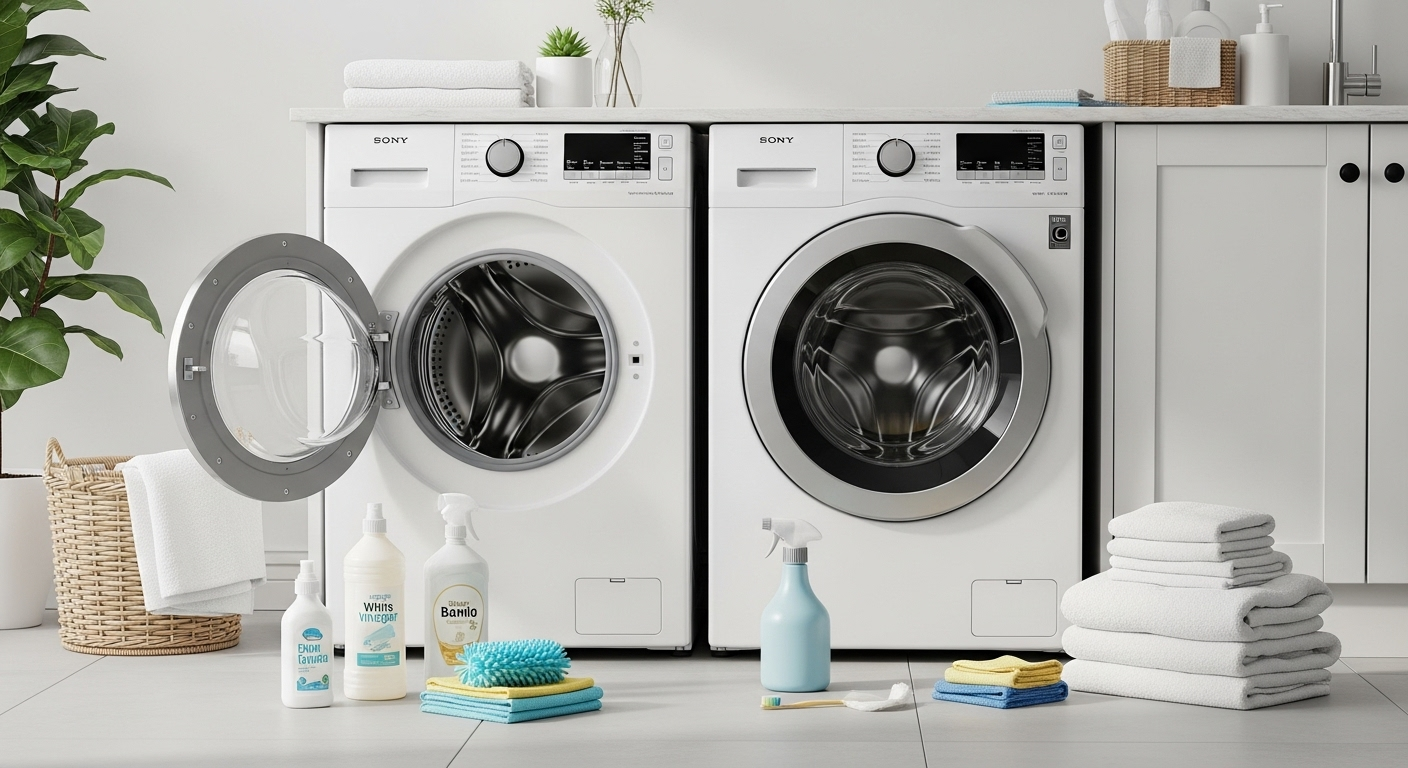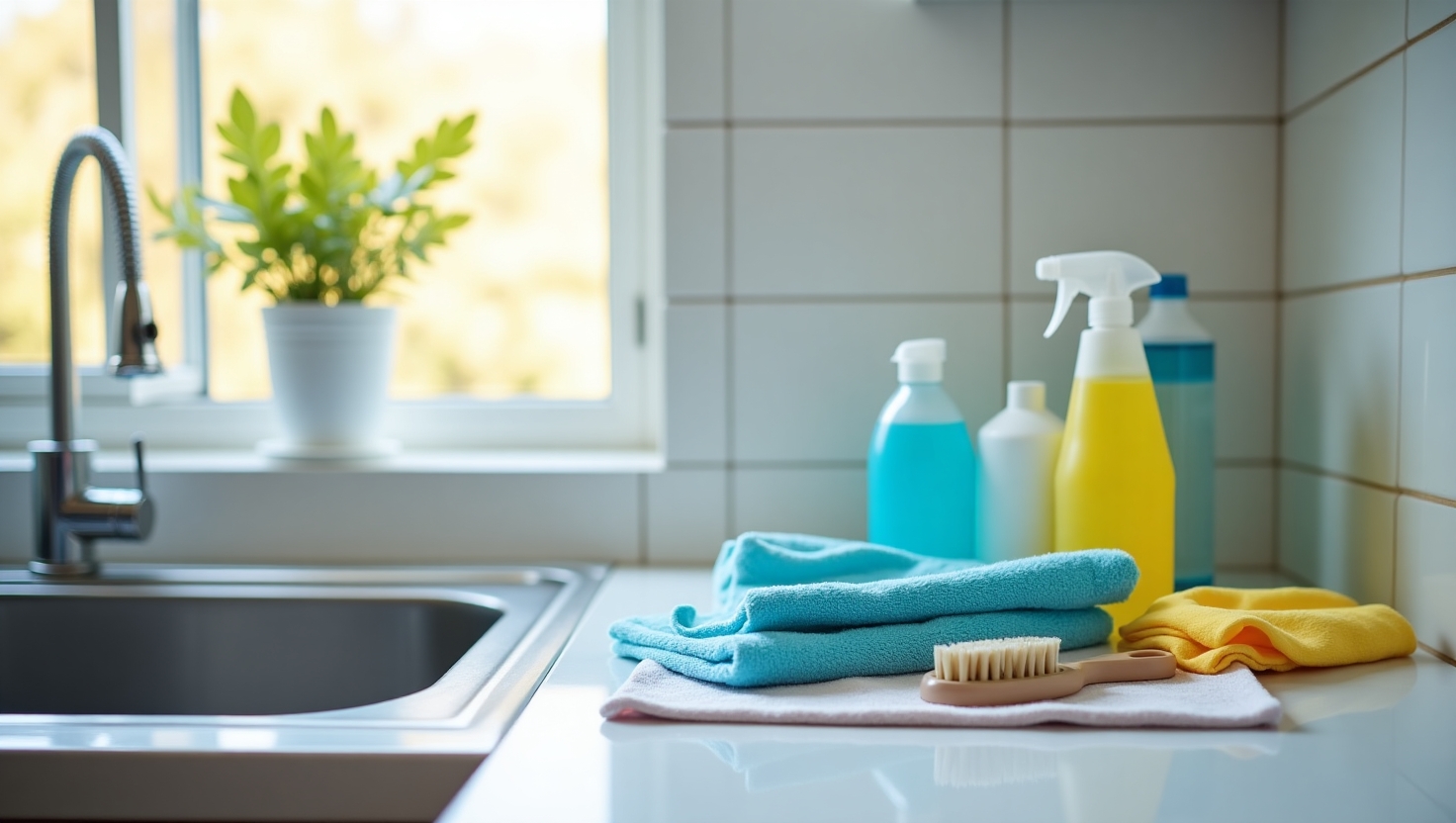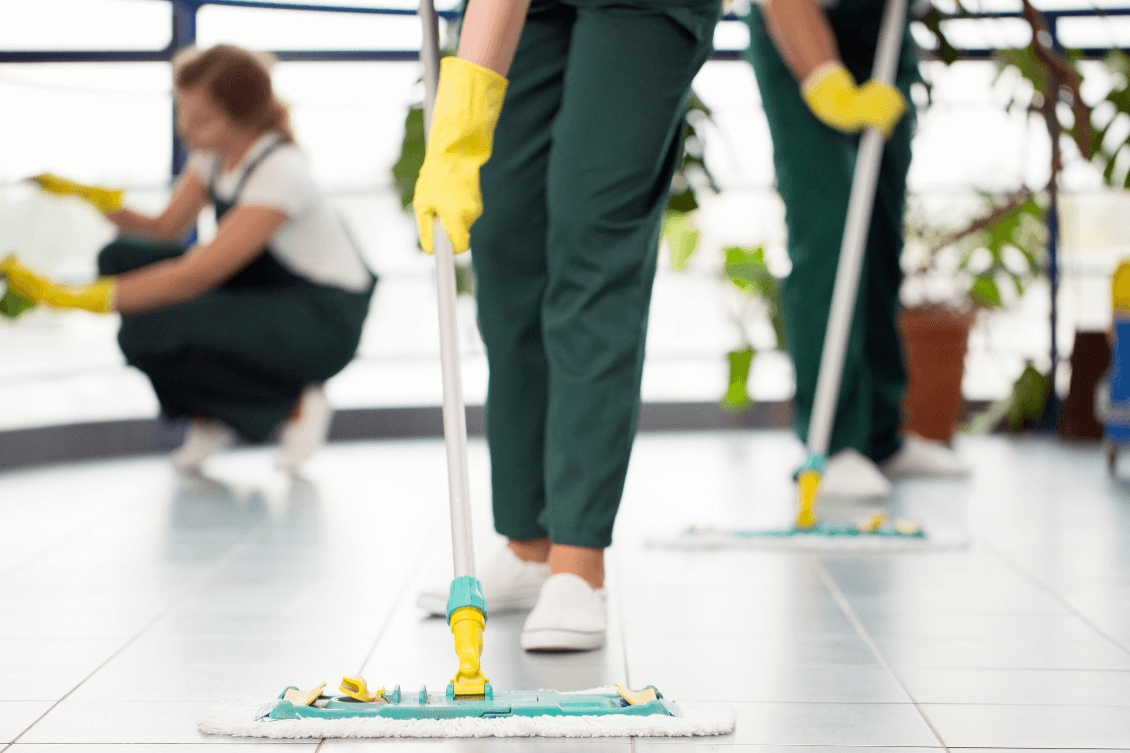In Australia, employers need to spend 90% of total business operations costs only on staff. This includes their salaries and benefits. So, with such big operational costs, you must expect the highest level of productivity from your employees.
To be most productive, keep your office clean and healthy for your employees. A higher standard of cleanliness increases productivity. At the same time, a lower standard of cleanliness decreases productivity.
In this guide, we will analyse how office cleanliness and productivity correlate. You will learn how vital office cleanliness is for your business growth.
The Link Between Office Cleanliness and Productivity
Office cleanliness can affect productivity. This is proven by research. Below, we have discussed how office cleanliness affects productivity.
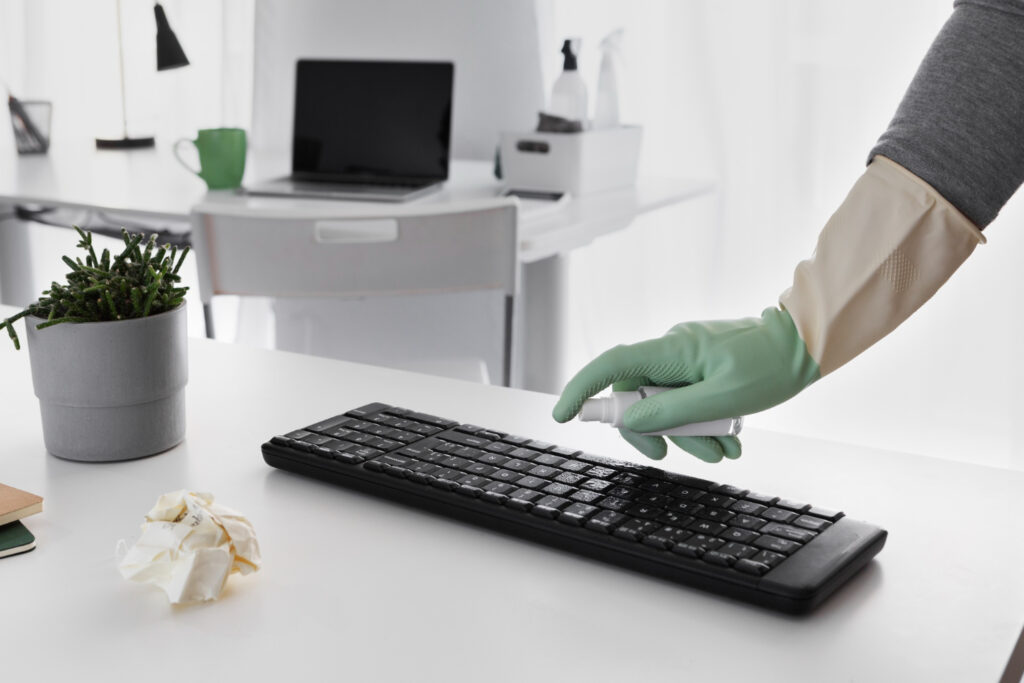
#1 Link Between Health Benefits of a Clean Office and Productivity
Low cleanliness in your office can cause several health issues for your employees and even for you. Here is some data on the health risks of the uncleaned office.
- According to a report by EHSToday- your office desk may have 400 times more bacteria than your toilet seat.
- Your office carpet may have 200000 bacteria in every sq. inch. This is 4000 times more than in your toilet.
- In Australia, 69% of staff absenteeism and 56% of employer absenteeism are caused by illness.
- Dirty kitchens in homes and workplaces cause 4 million gastroenteritis cases in Australia every year. The annual cost of medical treatment and lost productivity at work is projected to be $1.3 billion.
A survey shows that over 64% of employees would consider leaving their jobs if health safety isn’t ensured.
All these reasons can cut office productivity.
But, keeping employees healthy and the office clean can help. It can reduce health issues and absenteeism. A clean office lowers stress and exposure to germs, bacteria, and allergens.
Sanitation in the office environment contributes to a significant reduction in sick days. Proper sanitisation can reduce 80% to 99.9% of bacteria, avoiding the spread of contagious illness.
Also, you must ensure a healthy work environment for your employees under the Work Health and Safety Act 2011 in Australia.
So, when ensuring workplace hygiene and efficiency, this
- improves the impact of clean office spaces on work output and
- increases task consistency among the employees.
#2 Relation Between Indoor Air Quality and Productivity
Indoor air quality has a significant impact on the productivity of employees and health. Poor air quality can lead to fatigue, headaches, and respiratory issues.
Research published by NIH in 2004 shows that-
- Indoor air pollution reduces productivity when its levels rise.
- It also has negative effects on health and comfort.
Another report by Forbes shows that-
- 44% of employees felt sleepy due to poor air quality.
- 28% of employees experienced itchy, watery eyes and throat irritation due to poor air quality.
However, the scene changes when you ventilate the room. Also, natural sunlight plays a significant role in improving the mood of the employees. These increase their productivity.
An article by ZIGURAT says-
- Well-ventilated indoor spaces let in fresh outdoor air. It replaces the stale indoor air.
- So, it helps the employees to breathe easier, reduce fatigue and stress, and feel lethargic.
- A stress-free mental situation improves the mood of the employees.
- As a result, this helps to increase the team’s performance and productivity.
- Natural light helps you to feel fresh and relaxed since it regulates your circadian rhythm.
Another study shows that natural light’s Vitamin D improves-
- Attention,
- Physical activities,
- Sleep quality,
- Cognitive performance and
- Alertness
These key aspects help people be more productive and perform better.
Another study by the Harvard School of Public Health shows–
- A small indoor change can boost employees’ decision-making.
So, when employees are physically fit and feel well, they can give their best to increase productivity.
#3 Effects of Office Cleanliness on Mental Focus
Workplace clutter and employee productivity have a negative relationship. Cluttered environments create visual distractions in the office. This makes it harder for employees to concentrate.
According to research by Professor Sabine Kastner,
- clutters compete with our brain’s ability to pay attention. This decreases focus and performance. This ultimately results in decreased employee productivity.
Another study by Harvard Business Review says the same thing: clutter affects our brains and work. This same study also finds that clutters impact our general mental health. This makes people-
- Stressed,
- Anxious, and
- Depressed.
The situations show the importance of decluttering for better productivity. Organised spaces increase employee focus. They help staff find tools and materials easily. A clutter-free environment can boost productivity.
#4 Dirty Office Environment Drive Delay in Work
There is a link between employee well-being and clean workspaces. The dirty environment of an office reduces productivity in different ways. If any area that employees must access is dirty, they will avoid it.
A study shows that $6 billion was lost in Australia in 2019 because of employee delays. And do you know why the delay happened? Because they avoid dirty areas and go out to fulfil their needs. For example, employees may go out for coffee instead of entering a dirty kitchen.
#5 Employee Morale and Satisfaction in Clean Workspaces
A well-maintained workspace improves employee morale. This leads to better overall workplace efficiency. Employee morale and workspace cleanliness are interconnected.
A study found that-
- Workplace hygiene is more important to 91% of Australian workers.
- Long-term priorities will be hygiene and health for 86% of survey participants.
- If they are unhappy with the health and hygiene regulations at work, 67% of workers would resign.
These show that employers must ensure a safe, clean workplace for employee satisfaction.
Workers in clean, organised offices feel more valued. And this sense of respect for their well-being can lead to increased engagement and loyalty.
The concept of a clean workspace culture has gained traction. This is because more organisations see the link between cleanliness and morale.
High morale is essential for productivity. This is because engaged employees are more focused and innovative. They also collaborate with the team better.
The Importance of Regular Office Cleaning
Many workplaces now set office cleanliness standards to ensure hygiene. The standards often include the following.
- Guidelines for cleaning and cleaning schedule
- Personal workspace organisation
- Communal space maintenance, etc.
Establishing office cleanliness policies helps prevent the spread of illness. It also promotes a consistent level of sanitation. These support a healthier and more focused work environment.
Policies on office cleaning and employee output can keep productivity high all year. This can be maintained even during peak flu seasons, from April to October in Australia. Or in allergy-prone months.
Here’s the summary of the benefits of a clean office, which increases productivity.
- Health Benefits:
Clean offices reduce bacteria and allergens. This lowers illness rates and absenteeism.
- Enhanced Air Quality:
Fresh air and less dust reduce fatigue, headaches, and breathing problems. This enhances productivity.
- Better Focus:
Organised, clutter-free spaces minimise distractions. This helps employees concentrate and reduces stress.
- Reduced Delays
Employees are less likely to avoid essential areas like kitchens and restrooms when they’re clean. This leads to fewer interruptions in workflow.
- Higher Morale and Satisfaction:
A well-maintained office makes employees feel valued. This improves morale, engagement, and loyalty.
- Consistent Productivity:
Regular cleaning reduces the spread of illness. This ensures a steady workflow and reliable task completion.
Tips for Keeping Workspaces Clean and Productive
To implement a clean workspace culture in your office, you can adopt simple, effective practices. You can keep the environment organised and sanitary as follows.
- Set up regular decluttering sessions for personal and communal spaces. This will reduce distractions and create a clean space.
- Install air purifiers. When possible, encourage natural ventilation. It improves air quality. as indoor air quality and productivity are closely linked.
- Regularly disinfect high-touch surfaces. This keeps the workspace hygienic, reduces germs, and supports health.
- Hire pros for regular, thorough cleaning. Pros will ensure your workplace meets safety rules.
Final Words
Clean offices increase productivity. You must ensure a clean and hygienic office environment to achieve the maximum level of productivity. You can DIY the basic cleaning tasks. But we recommend professional cleaning for a thorough cleaning.
To get the best office cleaning service in Brisbane, you can choose us. At Eco Cleaning Brisbane, we ensure your office is cleaned to the highest level of cleanliness. We ensure your employees will be satisfied after we clean your office.
For over 20 years, we have been proudly delivering top-quality cleaning services throughout Brisbane. To get your cleaning service booked, contact us at +61 7 3189 2759 or info@ecobrisbane.com.au.
